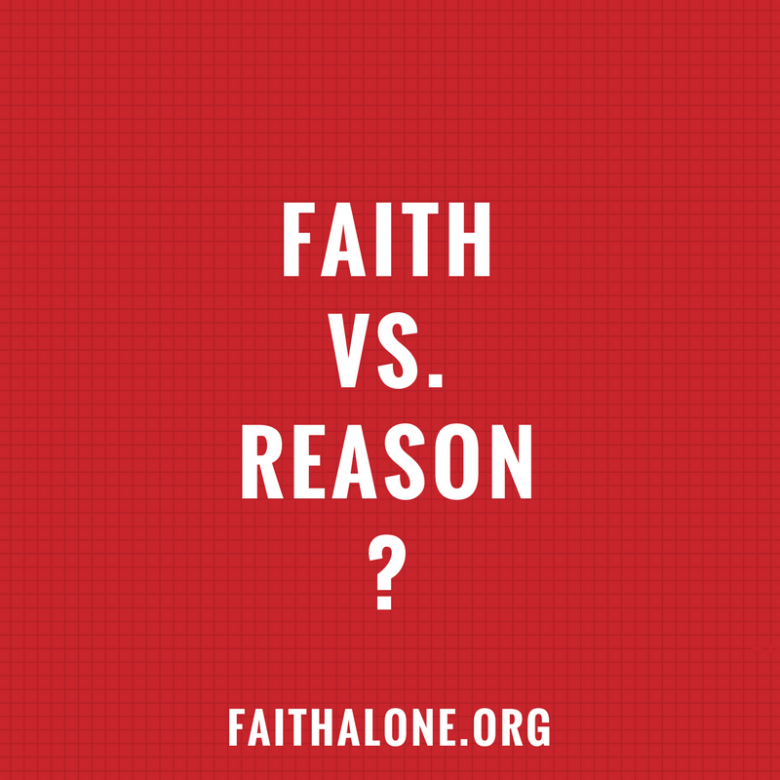“But everyone knows faith is what you aren’t sure about,” the man said. “So how can you be sure of your salvation if it’s based on faith?”
The man thought his view of faith and reason was common sense.
Much of what passes for common sense today is often just the trickled-down opinions of a dead philosopher. And unless you’re a student of intellectual history, you probably won’t recognize it.
Over the centuries, philosophers and theologians have characterized faith and reason in different ways. Here are just some of the options:
- Faith goes against the evidence; reason is based on the evidence.
- Faith pertains to God; reason pertains to the world.
- Faith comes from the heart; reason comes from the mind.
- Faith is based on the authority of the Church; reason is based on the authority of the senses.
- Faith concerns miracles; reason concerns science.
- Faith deals with probabilities; reason deals with certainties.
- Faith deals in certainties; reason in probabilities.
- Faith goes beyond the evidence; reason restricts itself to the evidence.
- Faith is revelation knowledge; reason is sense knowledge.
- Faith begins with axioms; reasons deduces truth from the axioms.
- Faith is illogical; reason is logical.
- Faith is against reason; reason is against faith.
- Faith deals with the immaterial; reason with the material.
- Faith is what we don’t know; reason is what we know.
- Faith is what we can’t prove; reason is what we can prove.
- Faith deals with the higher; reason with the lower.
- Faith is the beginning of reason; reason is the outworking of faith.
Do you hold one or more of these opinions? Then congratulations—somewhere, somehow, you have absorbed the opinions of a dead philosopher! But, now the really interesting part starts…which view above (if any) is true?


